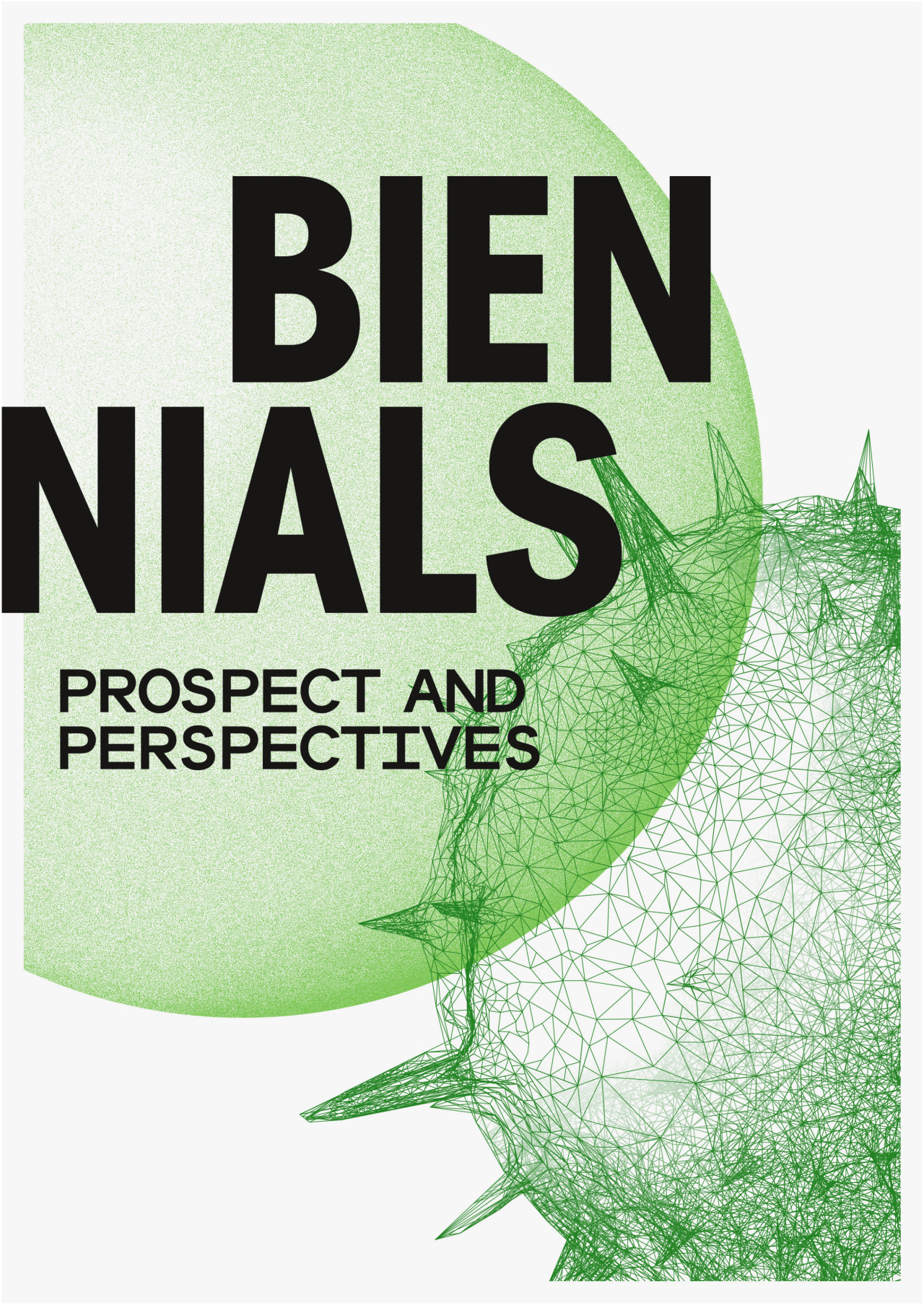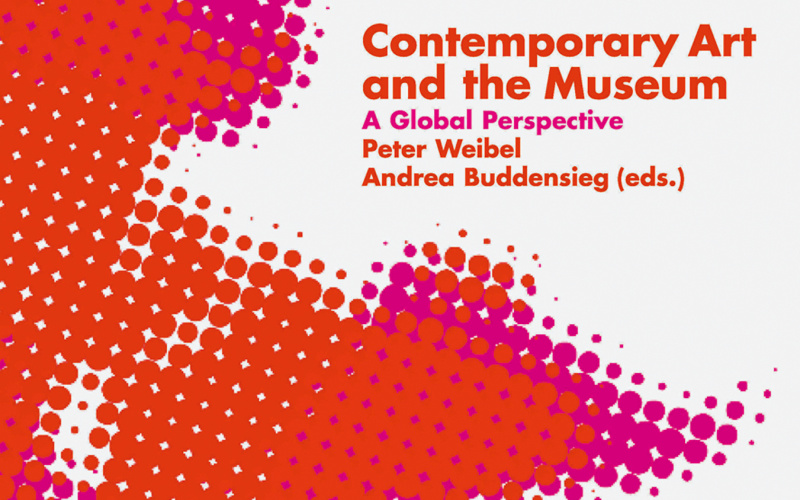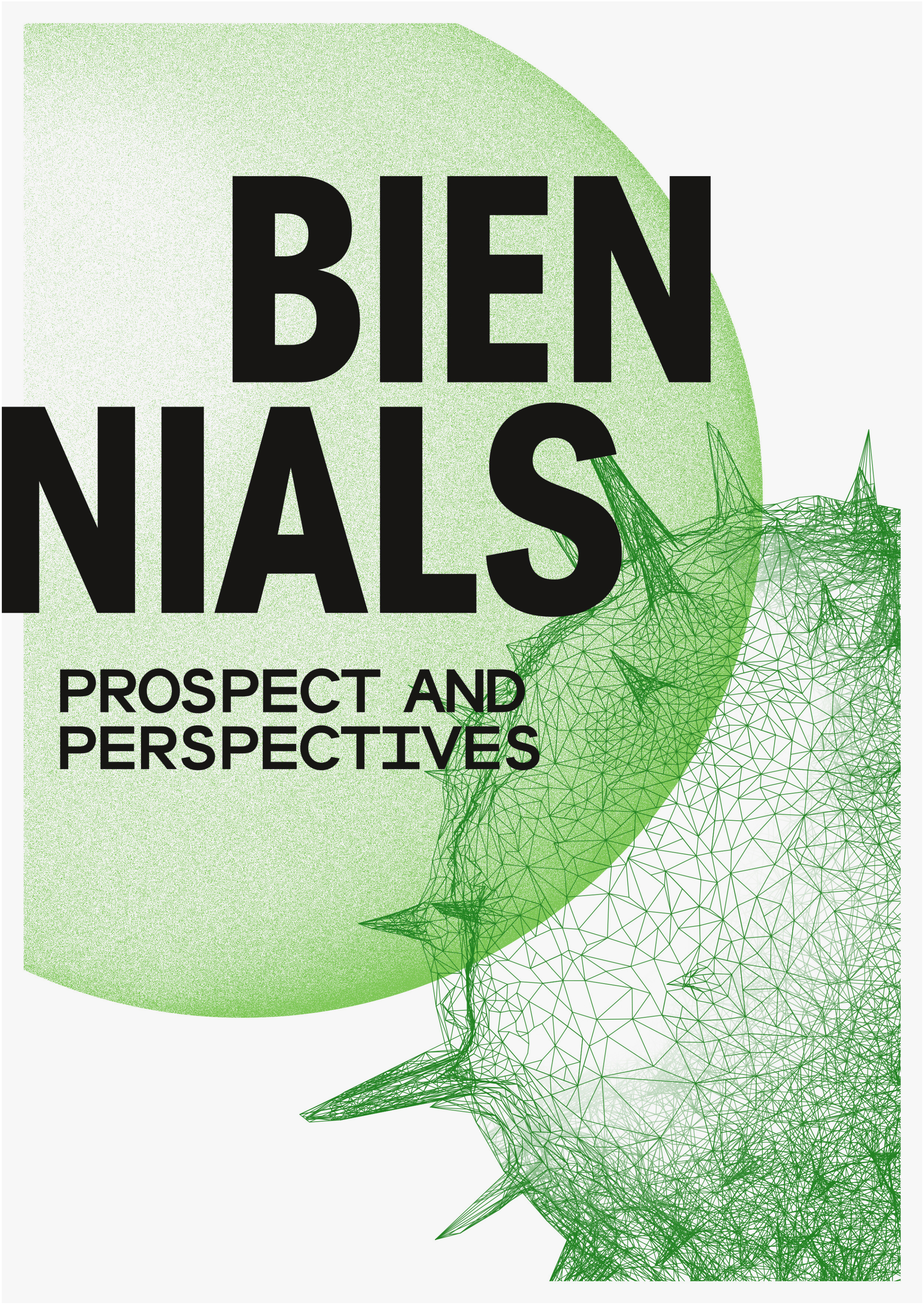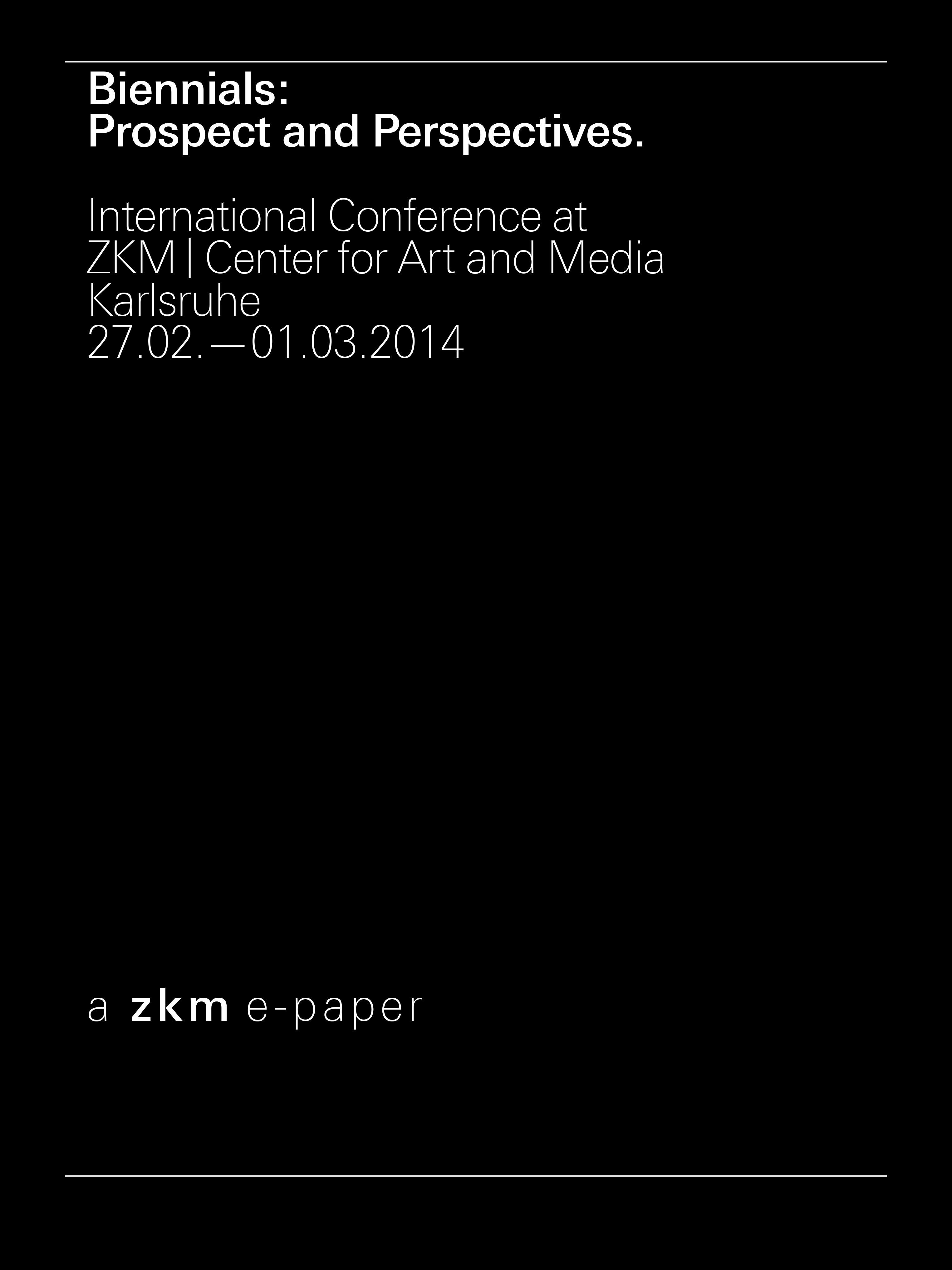- Konferenzband
- e-Paper
Biennials: Prospect and Perspectives
International Conference at ZKM | Center for Art and Media Karlsruhe 27.02.—01.03.2014
Andrea Buddensieg, Elke aus dem Moore, Peter Weibel (Eds.)
2015
- Publikationstyp
- Konferenzband
- e-Paper
- Verfasser / Herausgeber
Andrea Buddensieg, Elke aus dem Moore, Peter Weibel (Hg.)
- Verlag, Ort
- ZKM | Zentrum für Kunst und Medien, Karlsruhe
- Beschreibung
- 185 S., e-paper
- Sprache
- Englisch
- Jahr
- 2015
- ISBN
- 978–3–928201–50–6
- Inhalt
As part of the theoretical foundations of GLOBALE, ZKM, in cooperation with ifa (Institute for Foreign Cultural Relations), has organized a large-scale conference with approx. 40 curators who seismographically record and reflect the process of transformation triggered by globalization. The event’s objective is to sound out the potential of such large-scale events following almost three decades of biennialization. The conference forms part of the series »Biennials in Dialogue«, which ifa has been realizing with cooperation partners since 2000. Previous conferences took place in Kassel, Frankfurt am Main, Singapore, and Shanghai.
As one of the leading actors in international art exchange, with this series of events ifa gives impulses to the scientific encounter with biennials, as well as to the international discussion around the modes of contemporary exhibition formats. The striking spread of the biennial structure has brought about a multiplicity of concepts and discourses. While the biennial system is frequently criticized as a purely marketing instrument, it also provides a space for the critical encounter with political and social issues, for which existing institutions often provide no space. Clearly, the number of biennials has grown exponentially as a means of offsetting the pressure of selection produced by the art market. A multiplicity of art is produced worldwide, the platform of which is not the market and the museum, but the biennial.
The conference focusses on five core themes: the opening section entitled “Biennials and Public Space”, discusses art as public sphere and new public conceptions. The selection “Biennials as Motor for Social Change” seeks to examine the potential influence of biennials on the transformation of society and politics, and to investigate whether this question can be adequately answered. A further section is dedicated to the theme entitled “The Dynamics of Biennials and the Role of Its Actors (Curators, Artists, Organizers and Public)”. In the past, for example, the increased spread of biennials has decisively strengthened public perception among curators. Have there been similar effects on other actors, such as artists or the public? The “Chances and Limitations of Biennials in the Context of Marketing and Policies” is given over to the question as to the way in which biennials deal with demands, such as urban development, location, marketing, and political ambitions. The concluding discussion, “Alternatives/Open Spaces“ is concerned with alternative biennial models, which point to new visions for the future of biennials.AutorInnen
Katja Aßmann, Elise Atangana, Ute Meta Bauer, Luchezar Boyadjiev, Andrea Buddensieg, Patricia F. Druck, Fulya Erdemci, Christine Eyene, Blair French, Pan Gonkai, Leah Gordon, Ronald Grätz, Marieke van Hal, Mônica Hoff, Gabriele Horn, Tan Boon Hui, Abdellah Karroum, Kasper König, Yongwoo Lee, Carol Yinghua Lu, Elke aus dem Moore, Gerardo Mosquera, Patrick Mudekereza, Rafal Niemojewski, Bige Örer, Zhang Qing, Christoph Schäfe, Nicolaus Schafhausen, Başak Şenova, Royce Smith, Alia Swastika, Sally Tallant, Sabine B. Vogel, Peter Weibel, Jun Yang, Ursula Zeller
Download
Hier können Sie die Publikation herunterladen > Download.
Inhaltsangabe Introduction Peter Weibel Foreword Ronald Grätz Preface Elke aus dem Moore Biennials: Challenges and Opportunities, Widening and Limitations Andrea Buddensieg Research on the Topic of Biennials at ZKM Keynote Ute Meta Bauer Shifting Gravity – Force Fields: Biennials Today Panel I Biennials and Public Space Panel II Biennials as Motor for Social Change Panel III The Dynamics of Biennials and the Role of Its Actors Panel IV Chances and Limitations of Biennials in the Context of Marketing and Policies Panel V Alternatives / Open Spaces




